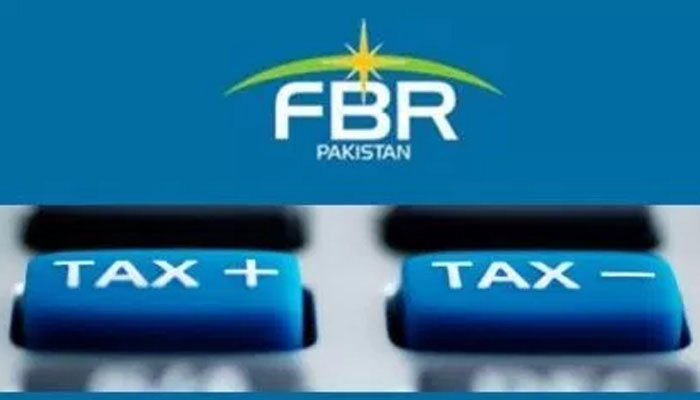Govt plans to abolish WHT on education, event fees
KARACHI: The government planned to abolish withholding taxes on education and event fees in the budget for the next fiscal year in a move to lighten load of taxes on public, sources said on Saturday.
Though the withholding tax is the major source of revenue collection for the Federal Board of Revenue (FBR), a number of withholding taxes generate insignificant revenue, according to the sources in the Large Taxpayers Office (LTO) Karachi. Therefore, the coming budget might see a removal of 8 to 10 withholding taxes, they said.
The FBR planned to eliminate various withholding tax provisions in order to reduce burden on taxpayers and provide relief to masses.
The LTO sources said the FBR reviewed withholding tax provisions under the Income Tax Ordinance 2001. Several provisions are yielding low revenue and creating hardship for taxpayers, they said.
The sources said the FBR will recommend about 8-10 withholding tax provisions in the upcoming budget 2021/22 for deleting from the ordinance.
They said withholding tax provisions as education fee and marriage/functions are under consideration for the deletion through the Finance Bill 2021. The FBR is also considering other provisions and would finalise the list before presenting for the budget proposals.
The sources said withholding tax contributes 72 percent to the total collection of income tax. The withholding tax collection was Rs1.1 trillion in FY2020 as against Rs960.2 billion, indicating a growth of 13.7 percent.
The 10 main segments that contributed around 84 percent to the total withholding collection included contracts, imports, salary, telephone, dividends, bank interest, cash withdrawal, electricity and exports.
The sources said tax collected under various heads of the withholding tax is adjustable. However, in some cases the tax collected is the final discharge of liability. Over the past few years, the FBR has taken major steps for rationalising withholding tax regime. Active taxpayers have already been exempted from withholding tax on cash withdrawal.
The withholding tax regime was introduced in the country to collect maximum revenue in the economy. However, the collection of withholding tax has become a major source of revenue collection.
Pakistan Tax Bar Association (PTBA) on many occasions urged the FBR to ease the burden of withholding taxes on the taxpayers.
The PTBA said withholding tax regime significantly impacts the taxpayers and Inland Revenue Officers (IROs) alike. On one hand, the regime increases cost of doing business for taxpayer and, on the other hand, it forces IROs to devote numerous resources in monitoring withholding taxes.
The monitoring of taxes’ goal can be achieved by outsourcing the professional auditor firm and the ability of the officer may be used for other work, the PTBA said in a report.
Even with the best efforts of the IROs, it is practically impossible to plug all the leakages of taxes withheld and deposit into the national exchequer.
“Globally the withholding tax regime is only applicable to persons whose income is difficult to determine, easier to evade or more likely to cross national boundaries,” the PTBA said. “Currently, in Pakistan, the withholding tax regime has been made applicable to almost all the categories of taxpayers and the nature of payment under 49 provisions of law has been weaved into the indirect taxes.”
-
 Gigi Hadid Talks About 'relieving Tension' Amid Having Hashimoto's Disease
Gigi Hadid Talks About 'relieving Tension' Amid Having Hashimoto's Disease -
 Sarah Ferguson Is 'persona Non Grata', Prince William Makes It Clear To Everyone
Sarah Ferguson Is 'persona Non Grata', Prince William Makes It Clear To Everyone -
 Northern Lights Alert On Valentine’s Day: How, Where & Best Time To Watch Auroras
Northern Lights Alert On Valentine’s Day: How, Where & Best Time To Watch Auroras -
 Dennis Quaid Reveals What Keeps His Marriage To Laura Savoie Healthy
Dennis Quaid Reveals What Keeps His Marriage To Laura Savoie Healthy -
 Mustafa Suleyman Says Microsoft Is Building Its Own AI Superintelligence
Mustafa Suleyman Says Microsoft Is Building Its Own AI Superintelligence -
 Jessica Alba, Cash Warren Finalize Divorce After 16 Years Of Marriage
Jessica Alba, Cash Warren Finalize Divorce After 16 Years Of Marriage -
 China’s AI Boom Takes Center Stage At Spring Festival One Year After DeepSeek Stirred The Industry
China’s AI Boom Takes Center Stage At Spring Festival One Year After DeepSeek Stirred The Industry -
 James Van Der Beek Called His Sixth Child Jeremiah 'healing For Us' Before His Death
James Van Der Beek Called His Sixth Child Jeremiah 'healing For Us' Before His Death -
 Elon Musk Vs Reid Hoffman: Epstein Files Fuel Public Spat Between Tech Billionaires
Elon Musk Vs Reid Hoffman: Epstein Files Fuel Public Spat Between Tech Billionaires -
 Gordon Ramsay Denies Victoria Beckham Got Handsy With Brooklyn At His Wedding
Gordon Ramsay Denies Victoria Beckham Got Handsy With Brooklyn At His Wedding -
 Gordon Ramsay Makes Unexpected Plea To Brooklyn As He Addresses Beckham Family Feud
Gordon Ramsay Makes Unexpected Plea To Brooklyn As He Addresses Beckham Family Feud -
 Prince Harry Warns Meghan Markle To 'step Back'
Prince Harry Warns Meghan Markle To 'step Back' -
 Selena Gomez Explains Why She Thought Lupus Was 'life-or-death'
Selena Gomez Explains Why She Thought Lupus Was 'life-or-death' -
 New Zealand Flood Crisis: State Of Emergency Declared As North Island Braces For More Storms
New Zealand Flood Crisis: State Of Emergency Declared As North Island Braces For More Storms -
 Nancy Guthrie Case: Mystery Deepens As Unknown DNA Found At Property
Nancy Guthrie Case: Mystery Deepens As Unknown DNA Found At Property -
 James Van Der Beek's Brother Breaks Silence On Actor's Tragic Death
James Van Der Beek's Brother Breaks Silence On Actor's Tragic Death




